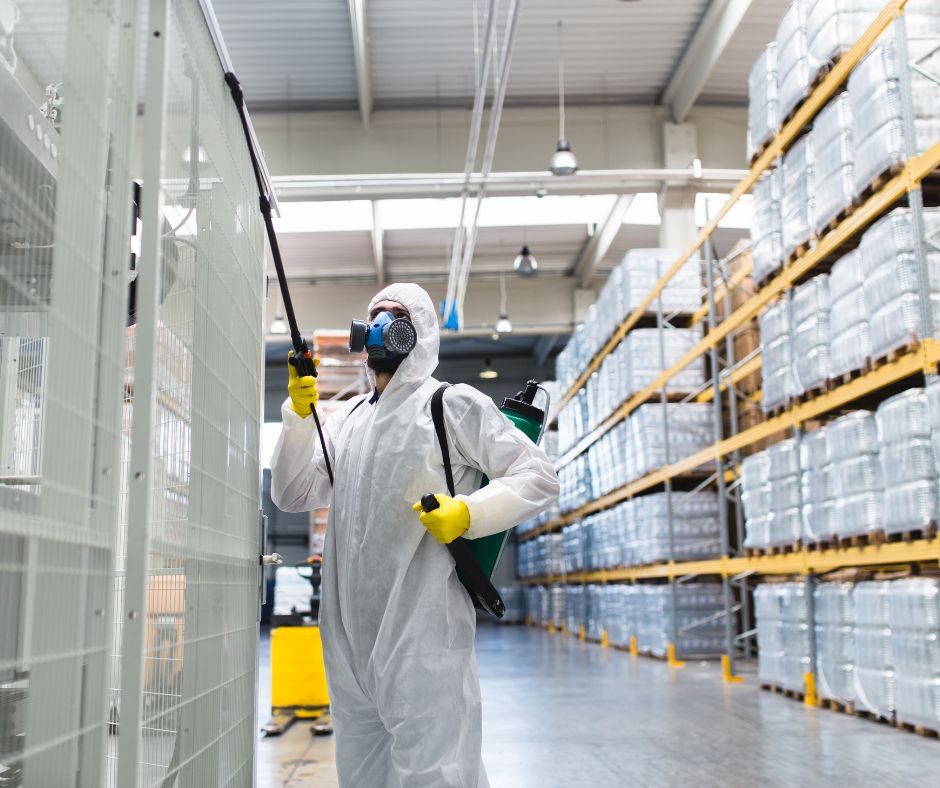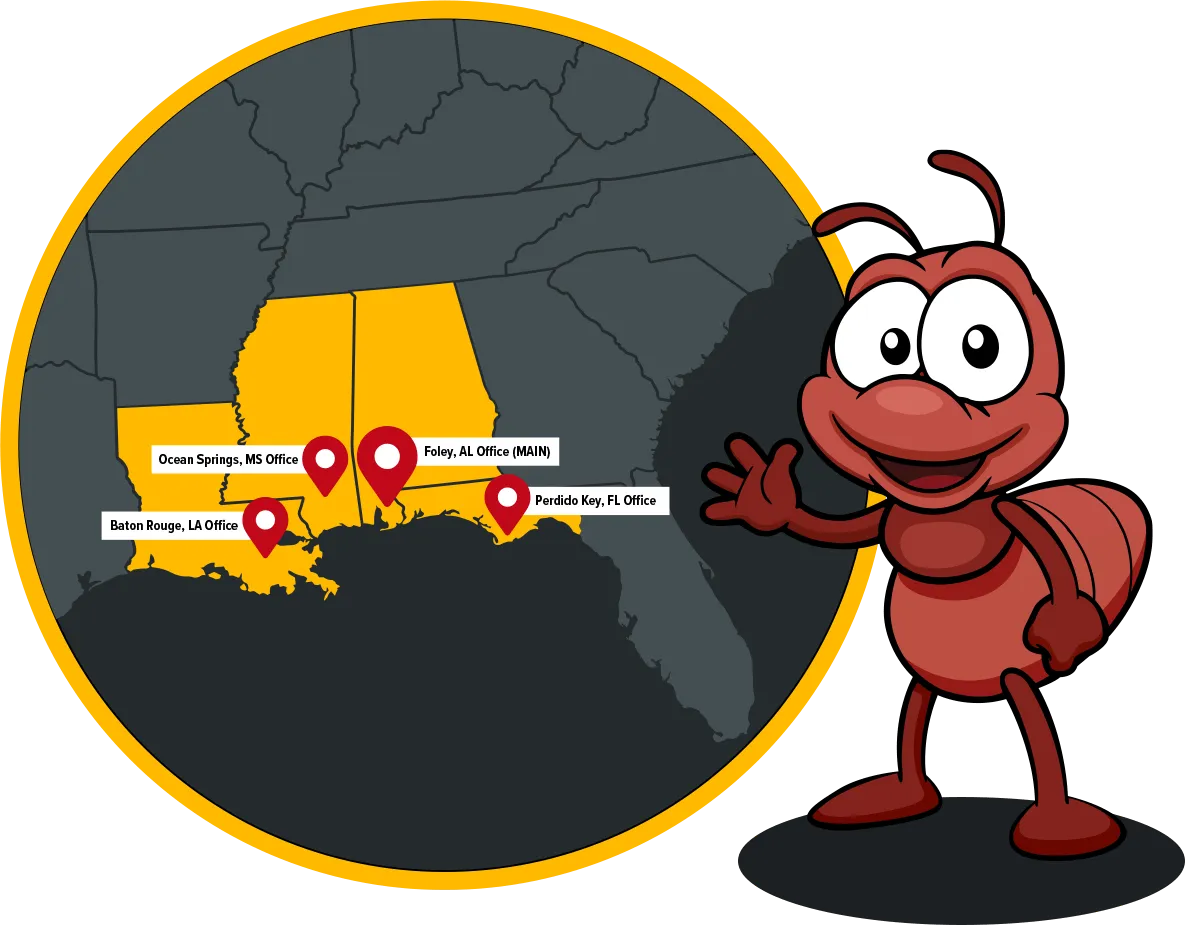Wildlife Removal Services in Port Charlotte for Humane and Safe Solutions
Wiki Article
Find Out About the most up to date Advancements in Bug Control and Exactly How to Execute Reliable Treatment Solutions
In current years, the area of parasite control has observed significant developments, driven by the requirement for efficient and lasting treatment options. Cutting-edge approaches such as Integrated Parasite Management (IPM) integrate environment-friendly practices with cutting-edge technology, boosting both efficacy and ecological responsibility.Eco-Friendly Pest Control Options
Recently, the need for green bug control choices has actually surged as businesses and house owners alike seek sustainable choices to traditional chemical therapies. This shift is driven by expanding ecological understanding and a need to reduce the health and wellness risks related to synthetic pesticides.

Green pest control methods encompass a series of methods that focus on making use of all-natural substances and practices. Integrated Bug Management (IPM) is one such technique, combining organic, social, and mechanical tactics to take care of parasite populations while reducing reliance on chemicals (Wildlife removal services). This holistic method emphasizes prevention with environment manipulation and the introduction of natural predators, consequently cultivating a well balanced community
One more prominent alternative is the use of herb chemicals derived from plants, which often tend to be less unsafe to non-target organisms. Products like neem oil and diatomaceous planet have actually gotten traction for their efficiency in managing insects while positioning minimal threats to human health and wellness and the atmosphere.
Additionally, exclusion strategies, such as sealing entrance factors and keeping tidiness, play a critical function in environment-friendly insect management. By adopting these sustainable techniques, services and individuals can efficiently take care of insects while promoting a much healthier earth for future generations.
Smart Innovation in Parasite Administration
Development is improving the landscape of pest management, with smart technology becoming a crucial force in improving efficiency and efficiency - Wildlife removal services. The integration of Web of Things (IoT) tools, expert system (AI), and information analytics is revolutionizing how insect control specialists approach infestations
Smart catches equipped with sensing units can find bug task in real-time, sending immediate notifies to operators. This permits for prompt feedbacks, reducing damages and reducing the demand for comprehensive therapies. Furthermore, AI formulas assess historic data to anticipate bug actions, allowing aggressive treatments based on environmental conditions and invasion patterns.
Drones and automated cars are additionally playing a significant role in insect administration, supplying aerial evaluations of huge locations, determining hotspots, and even distributing targeted treatments. These innovations not just streamline procedures yet additionally enhance safety by limiting human exposure to possibly harmful chemicals.
Additionally, mobile applications equip customers to check insect activity and accessibility expert suggestions, cultivating a joint approach to pest administration. Generally, the fostering of wise innovation is establishing a new criterion in pest control, highlighting data-driven choices and sustainable methods that inevitably profit both homeowners and experts alike.
Integrated Parasite Management Approaches
Integrated Pest Monitoring (IPM) uses a holistic approach to pest control, integrating different strategies to efficiently handle parasite populations while decreasing threats to human health and wellness and the environment. IPM focuses on comprehending the pest life cycle, their natural opponents, and the ecological community in which they prosper.One of the basic elements of IPM is keeping an eye on pest populations with regular examinations and data collection. This allows for the identification of pest limits, figuring out when intervention is required. Social methods, such as plant hygiene, turning, and habitat control, are necessary in reducing pest prevalence and promoting plant wellness.
Mechanical controls, consisting of catches and barriers, are likewise vital in IPM. These approaches can literally remove or discourage bugs without making use of chemicals. When required, the sensible application of chemical controls is used, concentrating on targeted treatments that reduce environmental effect.
Education and cooperation among stakeholders, including farmers, parasite control professionals, and the community, are critical for the effective implementation of IPM strategies. By prioritizing lasting methods, IPM not just addresses pest concerns yet likewise promotes a much healthier ecosystem.
Biological Control Techniques
Countless organic control approaches are significantly recognized for their performance in taking care of parasite populaces while advertising environmental Ant exterminator near me equilibrium. These methods harness natural predators, parasites, and pathogens to lower pest numbers without counting on artificial chemicals. For example, the introduction of ladybugs can successfully manage aphid populations, while nematodes target soil-dwelling bug larvae.In addition, making use of microbial chemicals, such as Bacillus thuringiensis (Bt), gives an eco-friendly alternative for handling caterpillar insects. These items specifically target pest species, minimizing harm to helpful bugs and pollinators. Preservation organic control emphasizes improving habitats for all-natural opponents, such as birds and beneficial bugs, thereby urging their existence in farming systems.
Research remains to disclose ingenious strategies within this area, such as the usage of scents to disrupt pest breeding patterns or the advancement of biocontrol representatives via genetic engineering. Implementing these methods can cause lasting parasite monitoring practices that mitigate the reliance on chemical treatments, inevitably cultivating much healthier ecological communities. As awareness of these strategies expands, they are becoming important elements of integrated parasite management (IPM) strategies, using an equilibrium in between reliable bug control and ecological stewardship.
Do It Yourself Bug Control Solutions
As home owners look for reliable methods to take on parasite concerns, do it yourself bug control services have gotten popularity for their accessibility and cost-effectiveness. These methods equip individuals to address problems utilizing conveniently offered products and strategies, commonly without the need for specialist treatment.
Furthermore, preserving proper hygiene and regular inspections can stop parasite entry and nesting (Wildlife removal services). Straightforward techniques, such as sealing fractures, getting rid of food sources, and decluttering, can dramatically reduce bug populations. Traps, both homemade and readily available, can likewise use effective solutions for monitoring and managing certain bugs like rats or bugs

Conclusion
The combination of environment-friendly insect control alternatives, smart technology, and ingenious administration techniques provides a thorough strategy to efficient bug management. By accepting Integrated Parasite Monitoring (IPM) and utilizing organic control methods, alongside DIY options, accountable and lasting insect control can be achieved. These advancements not just improve the effectiveness of parasite monitoring practices but additionally add to a healthier atmosphere. Applying these techniques cultivates a well balanced community while efficiently resolving pest populaces.Green pest control techniques encompass a variety of techniques that focus on the use of all-natural materials and methods. Integrated Parasite Administration (IPM) is one such method, incorporating organic, cultural, and mechanical strategies to take care of pest populations while reducing dependence on chemicals. As understanding of these strategies expands, they are ending up being essential elements of incorporated insect administration (IPM) approaches, providing an equilibrium between reliable parasite control and ecological stewardship.
The assimilation of environmentally friendly pest control alternatives, clever innovation, and innovative monitoring methods offers a detailed technique to reliable insect administration. By accepting Integrated Parasite Management (IPM) and making use of organic control methods, together with DIY options, sustainable and responsible parasite control can be achieved.
Report this wiki page